Do you find yourself entangled in a car accident claim but hesitant to seek legal counsel due to the associated costs? You’re not alone. Many individuals attempt to navigate the complex claims process independently, hoping to save money and maintain control over their case. However, without proper guidance, this endeavor can quickly become overwhelming and frustrating, often leading to suboptimal settlements or even costly mistakes.
Fortunately, this comprehensive guide is here to empower you with the knowledge and strategies necessary to settle your auto accident claim without a lawyer’s assistance. We’ll walk you through every step, from gathering essential evidence to negotiating with insurance companies and calculating damages accurately. By the end, you’ll feel confident in your ability to advocate for your rights and secure the compensation you deserve.
Understanding the Claims Process for Settle Auto Accident without a Lawyer
Embarking on the journey of settling an auto accident claim without legal representation requires a thorough understanding of the claims process itself. This intricate maze involves various stages, each with its own set of rules and nuances. Familiarize yourself with the fundamental steps, such as filing a claim, gathering evidence, negotiating with insurance adjusters, and potentially escalating the matter to alternative dispute resolution or litigation.
The Role of Insurance Companies
Insurance companies play a pivotal role in the claims process. Their primary objective is to minimize payouts while protecting their financial interests. It’s crucial to recognize that insurance adjusters may attempt to downplay the severity of your injuries or shift blame, ultimately reducing the settlement amount they offer. Arming yourself with knowledge about their tactics and your rights as a claimant is essential for a fair resolution.
Statute of Limitations
Every state has a specific statute of limitations that determines the timeframe within which you must file a claim or initiate legal action. Missing this deadline can result in your claim being barred, regardless of its merits. Ensure you thoroughly understand and adhere to the statute of limitations applicable to your case to avoid any potential complications or loss of rights.
Gathering Essential Evidence

Collecting and preserving evidence is a critical step in substantiating your auto accident claim. Without compelling proof, insurance companies may attempt to diminish or deny your claim altogether. Thorough documentation can significantly strengthen your negotiating position and increase the likelihood of a favorable settlement.
Police Reports and Witness Statements
Police reports and witness statements serve as valuable sources of information, documenting the circumstances of the accident and establishing fault. Obtain copies of these documents as soon as possible, as they can provide impartial accounts of the incident and corroborate your version of events.
Photographic and Video Evidence
Visual evidence, such as photographs and video footage, can be instrumental in demonstrating the extent of damages, injuries, and the accident scene itself. Capture detailed images of the vehicles involved, skid marks, road conditions, and any visible injuries you or your passengers sustained.
Medical Records and Expenses
Maintaining meticulous records of all medical treatments, diagnoses, and associated expenses is crucial. These documents substantiate the severity of your injuries and provide a comprehensive overview of the costs incurred, allowing for accurate compensation calculations.
Calculating Your Damages after Auto Accident

Accurately assessing the extent of your damages is a fundamental step in pursuing a fair settlement. This process encompasses both economic and non-economic losses, ensuring you receive appropriate compensation for all aspects of your claim.
Economic Damages
Economic damages refer to quantifiable financial losses, such as medical expenses, lost wages, property damage, and other out-of-pocket costs directly resulting from the accident. Carefully document and calculate these expenses to ensure you receive adequate compensation.
Non-Economic Damages
Non-economic damages encompass intangible losses, such as pain and suffering, emotional distress, and diminished quality of life. While more subjective in nature, these damages can significantly impact your overall settlement amount. Consult reputable sources and consider factors like the severity of your injuries and the duration of your recovery.
Multiplier Method for Pain and Suffering
One common approach to calculating non-economic damages is the multiplier method. This technique involves multiplying your economic damages by a factor (typically between 1.5 and 5) based on the severity of your injuries and the impact on your life. While not a definitive calculation, this method can provide a reasonable estimate for negotiation purposes.
Related Post: Can I Just Add Coolant To My Car?
Negotiating with the Insurance Company

Effective negotiation is a crucial aspect of settling your auto accident claim without legal representation. Insurance companies are motivated to minimize payouts, so you must be prepared to advocate for your rights and present a compelling case.
Understanding Insurance Tactics
Insurance adjusters are trained to employ various tactics to reduce settlement amounts. These may include downplaying the severity of your injuries, shifting blame, or offering lowball settlements in the hopes that you’ll accept out of desperation or frustration. Recognizing and countering these strategies is essential for successful negotiations.
Presenting Your Case
When negotiating with the insurance company, clearly articulate the details of your claim, including the extent of your injuries, medical expenses, lost wages, and any non-economic damages. Support your arguments with documented evidence, such as medical records, witness statements, and photographs. Remain firm in your demands while maintaining a professional demeanor.
Responding to Settlement Offers
Insurance companies often start with low settlement offers, anticipating counter-offers and negotiations. Carefully evaluate each offer and compare it to your calculated damages. If the offer is significantly lower than your expectations, provide a detailed counter-offer supported by evidence and a clear rationale for the higher amount.
Writing an Effective Demand Letter
A well-crafted demand letter can be a powerful tool in your negotiations with the insurance company. This formal document outlines the details of your claim, the damages you’ve incurred, and the compensation you’re seeking.
Key Components of a Demand Letter
An effective demand letter should include a clear and concise summary of the accident, a detailed breakdown of your damages (both economic and non-economic), and a specific monetary demand for settlement. Support your claims with evidence, such as medical records, repair estimates, and witness statements.
Tone and Language
While the demand letter should be formal and professional, avoid confrontational or aggressive language that could undermine your position. Present your case objectively and emphasize your willingness to negotiate in good faith.
Response Deadline
Include a reasonable deadline for the insurance company to respond to your demand letter. This demonstrates your commitment to resolving the matter promptly and may encourage a timely response from the insurance adjuster.
Dealing with Lowball Settlement Offers
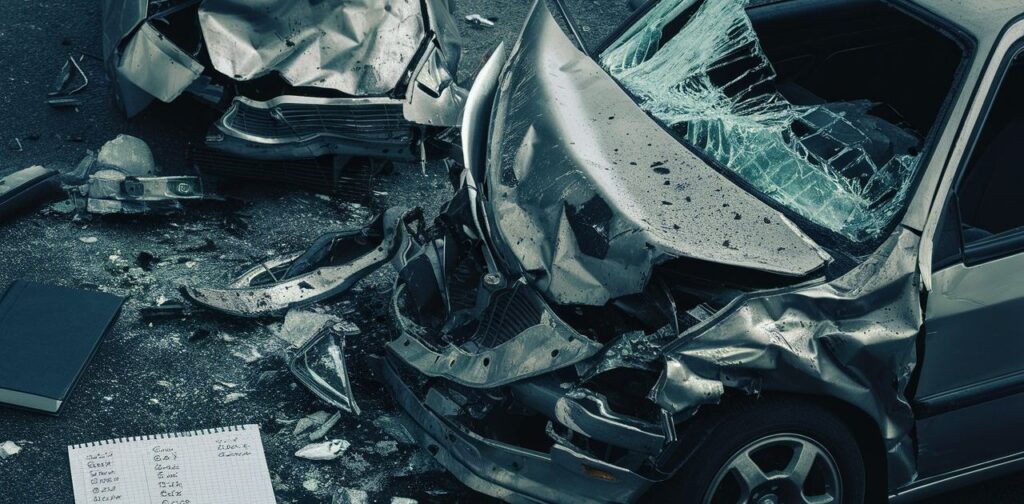
Insurance companies often employ tactics to minimize payouts, including offering lowball settlements in the hopes that claimants will accept out of frustration or desperation. However, accepting an inadequate settlement can have long-term consequences, leaving you financially burdened and without proper compensation for your losses.
Evaluating the Offer
Carefully review any settlement offer from the insurance company and compare it to your calculated damages. If the offer is significantly lower than your expectations, do not accept it immediately. Instead, take the time to analyze the discrepancy and prepare a counter-offer supported by evidence.
Countering with a Reasonable Offer
When countering a lowball settlement offer, present a reasonable and well-supported counter-offer that accurately reflects the full extent of your damages. Support your position with documented evidence, such as medical records, repair estimates, and witness statements.
Negotiations and Compromise
Negotiation is a give-and-take process, and both parties may need to compromise to reach a mutually agreeable settlement. However, it’s essential to remain firm in your demands and avoid accepting an offer that fails to adequately compensate you for your losses.
Knowing Your Rights and Leverage
Understanding your rights and leverage as a claimant is crucial when navigating the auto accident claims process without legal representation. Armed with this knowledge, you can effectively advocate for your interests and increase your chances of securing a fair settlement.
Right to Seek Compensation
Under the law, you have the right to seek compensation for damages resulting from an auto accident caused by another party’s negligence. This includes compensation for medical expenses, lost wages, property damage, and non-economic losses such as pain and suffering.
Leverage in Negotiations
While insurance companies may initially attempt to minimize payouts, you have leverage in negotiations. Factors such as strong evidence, a well-documented case, and a willingness to escalate the matter if necessary can strengthen your position and encourage a more favorable settlement offer.
Statute of Limitations and Legal Recourse
If negotiations with the insurance company reach an impasse, you have the option to pursue legal action within the applicable statute of limitations. The threat of litigation can sometimes motivate insurance companies to negotiate in good faith and offer a reasonable settlement to avoid the costs and uncertainties of a court case.
The Importance of Documentation
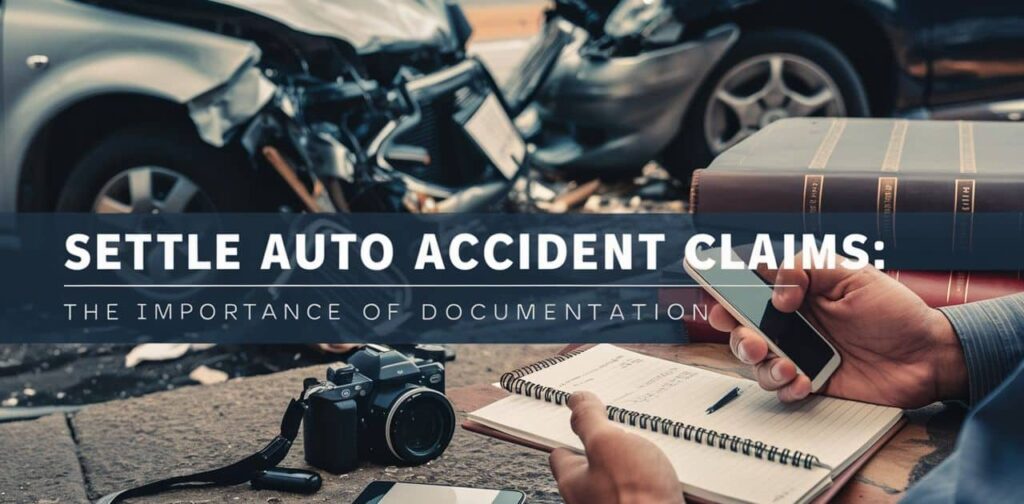
Thorough documentation is a critical aspect of successfully settling an auto accident claim without legal representation. Maintaining meticulous records and preserving evidence can significantly strengthen your case and increase your chances of receiving a fair settlement.
Medical Records and Bills
Keeping detailed medical records and bills is crucial for accurately calculating your economic damages. These documents serve as proof of the injuries sustained, treatments received, and associated costs. Ensure you obtain copies of all relevant records, including diagnostic reports, physician notes, and itemized bills.
H3: Proof of Lost Wages
If your injuries resulted in missed work or a loss of income, documenting your lost wages is essential. Obtain written statements from your employer detailing your regular earnings, the time missed from work, and any potential future lost income due to lingering effects of your injuries.
Vehicle Repair Estimates and Bills
In cases involving vehicle damage, obtain detailed repair estimates and final bills from reputable auto repair shops. These documents will substantiate the costs associated with restoring your vehicle to its pre-accident condition or establish its total loss value.
Accident Scene and Witness Evidence
Photographs, videos, police reports, and witness statements can provide valuable evidence to support your version of events and establish fault. Collect and organize this information meticulously, as it can be pivotal in negotiations with the insurance company.
Handling Medical Bills and Records
Navigating the complexities of medical bills and records can be daunting, especially when dealing with the aftermath of an auto accident. Proper management of these documents is crucial for accurately calculating your damages and ensuring you receive appropriate compensation.
Obtaining Copies of Records
Promptly request copies of all medical records, including diagnostic reports, treatment plans, and physician notes, from the relevant healthcare providers. These documents will serve as evidence of the extent of your injuries and the treatments received.
Reviewing Bills for Accuracy
Carefully review all medical bills for accuracy, ensuring that the charges align with the treatments and services provided. Identify and address any discrepancies or errors promptly to avoid overpaying or encountering disputes during the claims process.
Tracking Out-of-Pocket Expenses
Keep a detailed record of any out-of-pocket expenses related to your medical treatment, such as co-pays, deductibles, prescription costs, and transportation expenses. These expenses should be included in your overall damages calculation.
Negotiating with Medical Providers
In some cases, you may be able to negotiate with medical providers to reduce outstanding bills or establish payment plans. This can alleviate financial strain and potentially increase the amount available for your settlement negotiations with the insurance company.
Determining Fault and Liability
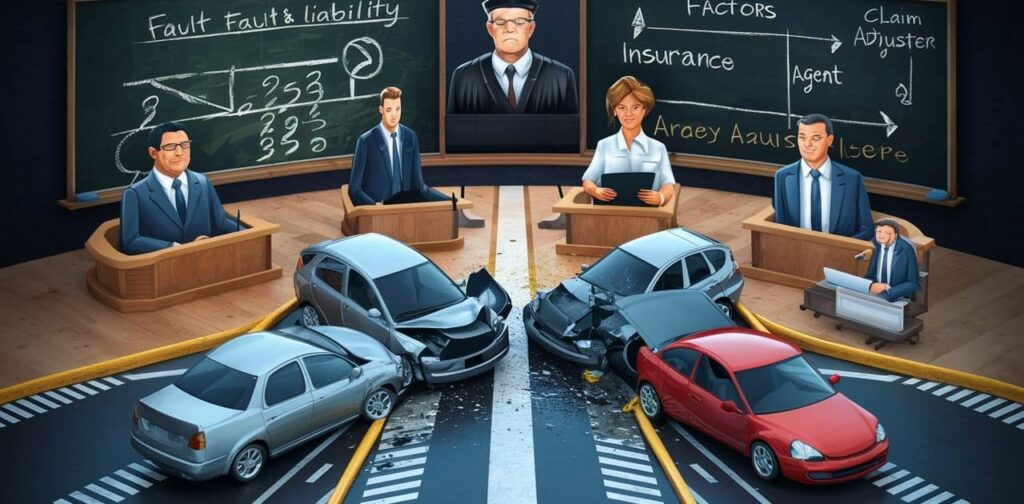
Establishing fault and liability is a critical step in the auto accident claims process, as it directly impacts the amount of compensation you may be entitled to receive. Thorough investigation and analysis of the accident circumstances are essential.
Negligence Laws and Comparative Fault
Most states follow some form of comparative negligence laws, which allocate fault based on the degree of responsibility of each party involved in the accident. Understanding these laws and how they apply to your case can help you accurately assess liability and potential compensation.
Police Reports and Witness Statements
Police reports and witness statements can provide valuable insights into the circumstances of the accident and help establish fault. Obtain copies of these documents and review them carefully for any discrepancies or inconsistencies that may impact liability determination.
Accident Reconstruction and Expert Analysis
In complex cases or those involving disputed liability, consider consulting with an accident reconstruction expert or hiring a private investigator. Their expertise can provide a thorough analysis of the accident scene, vehicle damage, and other factors to help establish fault more conclusively.
Considering Future Medical Expenses
When settling an auto accident claim, it’s crucial to consider not only the current medical expenses but also the potential for future medical needs and associated costs. Failing to account for these expenses could leave you financially vulnerable and inadequately compensated.
Long-Term Care and Rehabilitation
Depending on the severity of your injuries, you may require ongoing medical care, rehabilitation services, or assistive devices. Consult with medical professionals to estimate the potential costs of these future needs and factor them into your settlement negotiations.
Potential Complications and Surgeries
Some injuries may require additional medical interventions or surgeries down the line, even after an initial recovery period. Discussing the likelihood of such complications with your healthcare providers can help you plan for and include these potential expenses in your claim.
Lost Future Earning Potential
In cases of severe or permanent injuries, you may experience a reduction in your future earning potential or the inability to continue working in your current profession. Consult with vocational experts and economists to estimate these potential losses and incorporate them into your settlement demand.
Releasing the Claim Properly
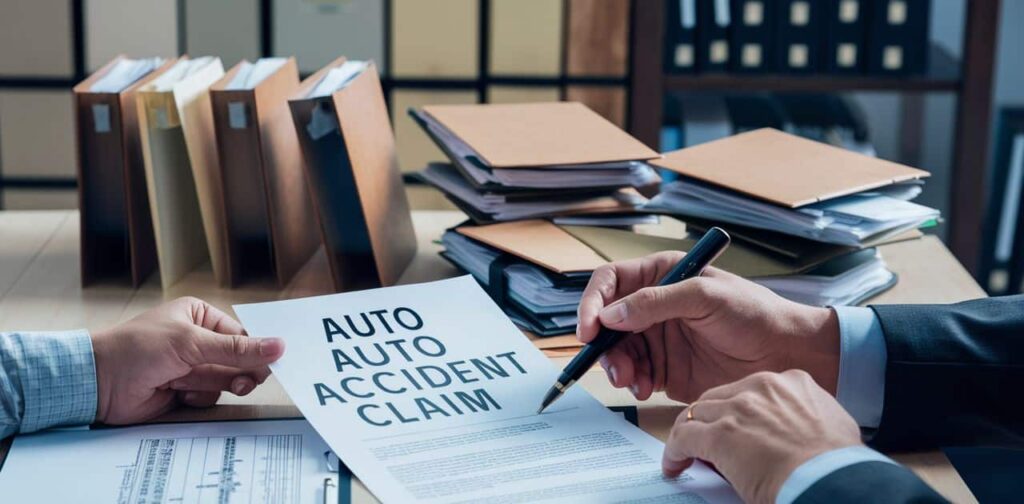
Once a settlement agreement has been reached, it’s essential to ensure that the claim is released properly to avoid any future disputes or liabilities. This step involves carefully reviewing the settlement documents and adhering to the agreed-upon terms and conditions.
Reviewing Settlement Documents
Before signing any settlement agreement, thoroughly review the documents with a critical eye. Ensure that the terms accurately reflect the agreed-upon compensation, release of liability, and any other provisions discussed during negotiations.
Consulting with Professionals
If you have any doubts or concerns about the settlement documents, consider consulting with a professional, such as an accountant or a trusted advisor, to ensure that you fully understand the terms and their implications.
Adhering to Release Conditions
Once the settlement is finalized, strictly adhere to any conditions or stipulations outlined in the release agreement. This may include refraining from discussing the settlement publicly, returning any personal property or evidence, or providing additional documentation as required.
When to Consider Hiring a Lawyer
While settling an auto accident claim without legal representation is possible, there are certain situations where hiring a lawyer may be advisable or even necessary. Recognizing these circumstances can help you make an informed decision and protect your rights and interests.
Complex or High-Value Claims
If your claim involves significant damages, severe injuries, or complex legal issues, seeking the guidance of an experienced personal injury lawyer may be beneficial. These cases often require specialized knowledge and negotiation skills to secure a fair settlement.
Disputes Over Liability or Bad Faith Practices
If the insurance company disputes liability or engages in bad faith practices, such as denying a valid claim or failing to negotiate in good faith, legal representation can provide valuable assistance in protecting your rights and pursuing appropriate action.
Approaching Statute of Limitations
If the statute of limitations for filing a lawsuit is approaching, and negotiations with the insurance company have stalled, consulting with a lawyer can help you understand your options and ensure that your rights are preserved.
Avoiding Common Mistakes
Navigating the auto accident claims process without legal representation can be challenging, and it’s essential to avoid common mistakes that could jeopardize your chances of receiving a fair settlement. Here are some pitfalls to be aware of:
Providing Recorded Statements
Insurance adjusters may request a recorded statement from you, but providing one could potentially compromise your case. Consult with a professional before agreeing to such a request, as your statements could be used against you later.
Accepting the First Settlement Offer
Insurance companies often present lowball initial settlement offers, hoping that claimants will accept out of desperation or a lack of understanding of their rights. Never accept the first offer without carefully evaluating it against your calculated damages and negotiating for a fair settlement.
Failing to Gather Sufficient Evidence
Neglecting to gather and preserve crucial evidence, such as photographs, witness statements, and medical records, can significantly weaken your case and undermine your ability to prove damages and establish fault.
Missing Deadlines or Statute of Limitations
Overlooking important deadlines or the statute of limitations for filing a claim or legal action can result in the loss of your right to seek compensation. Stay organized and keep track of all relevant dates and deadlines.
Alternative Dispute Resolution Options
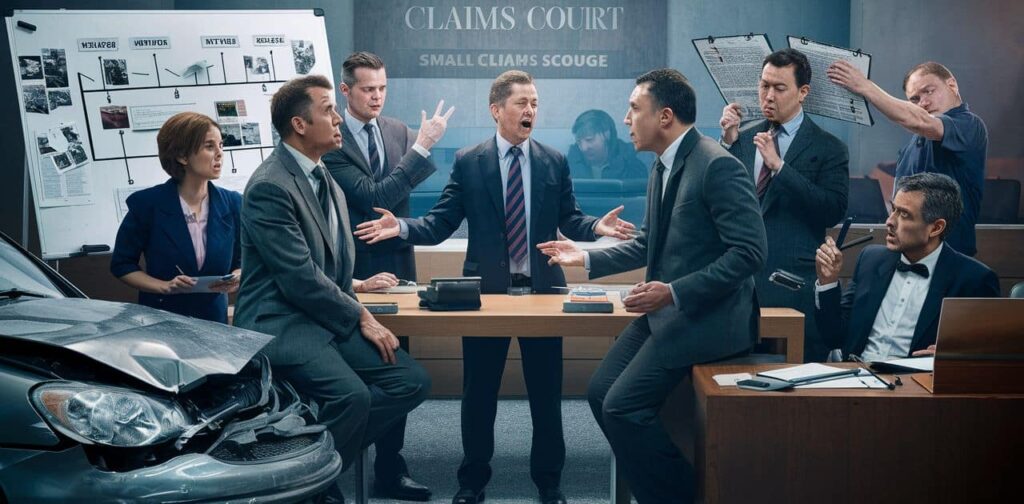
In some cases, negotiations with the insurance company may reach an impasse, leaving you with the option to explore alternative dispute resolution methods. These approaches can help resolve conflicts without the need for costly and time-consuming litigation.
Mediation
Mediation involves a neutral third-party mediator who facilitates discussions between you and the insurance company to reach a mutually acceptable settlement. This process can be less adversarial and more cost-effective than going to court.
Arbitration
Arbitration is a more formal process where a neutral arbitrator, mutually agreed upon by both parties, hears arguments and evidence before rendering a binding decision. While less expensive than litigation, arbitration decisions are typically final and have limited grounds for appeal.
Small Claims Court
If your claim falls within the jurisdictional limits of your local small claims court, you may consider pursuing this avenue. Small claims courts provide a simplified legal process for resolving disputes involving relatively small amounts of money, without the need for an attorney in most cases.
FAQ’s
Can I negotiate with the insurance company directly?
Yes, you can negotiate directly with the insurance company’s adjuster. However, be prepared with documentation and a clear understanding of the claim process.
What if the insurance company denies my claim?
If your claim is denied, you can appeal the decision by providing additional evidence and explanations. If the denial persists, consider alternative dispute resolution options.
How long do I have to file a claim?
The statute of limitations for filing a claim varies by state, typically ranging from 1 to 6 years. It’s crucial to file within the applicable timeframe.
Should I accept the first settlement offer?
No, it’s generally advisable not to accept the first offer from the insurance company, as it’s often a lowball amount. Counter with a well-supported demand for a fair settlement.
Can I reopen a settled claim if my injuries worsen?
Once a claim is settled and a release is signed, it’s difficult to reopen the case. Consider future medical expenses before finalizing the settlement.
Conclusion
Navigating the complexities of an auto accident claim without legal representation can be a daunting task, but with the right knowledge and preparation, it is achievable. By understanding the claims process, gathering evidence, calculating damages accurately, and negotiating effectively with insurance companies, you can increase your chances of securing a fair settlement.
However, it’s essential to recognize the potential challenges and pitfalls that may arise along the way. From dealing with lowball settlement offers to ensuring proper documentation and adhering to deadlines, each step requires diligence and attention to detail. Additionally, knowing when to consider seeking legal counsel can be crucial, especially in cases involving complex legal issues, disputes over liability, or bad faith practices by insurance companies.
Ultimately, the decision to settle an auto accident claim without a lawyer rests on your individual circumstances and comfort level with the process. By arming yourself with the information presented in this comprehensive guide and remaining vigilant throughout the claims process, you can confidently advocate for your rights and pursue the compensation you deserve.







